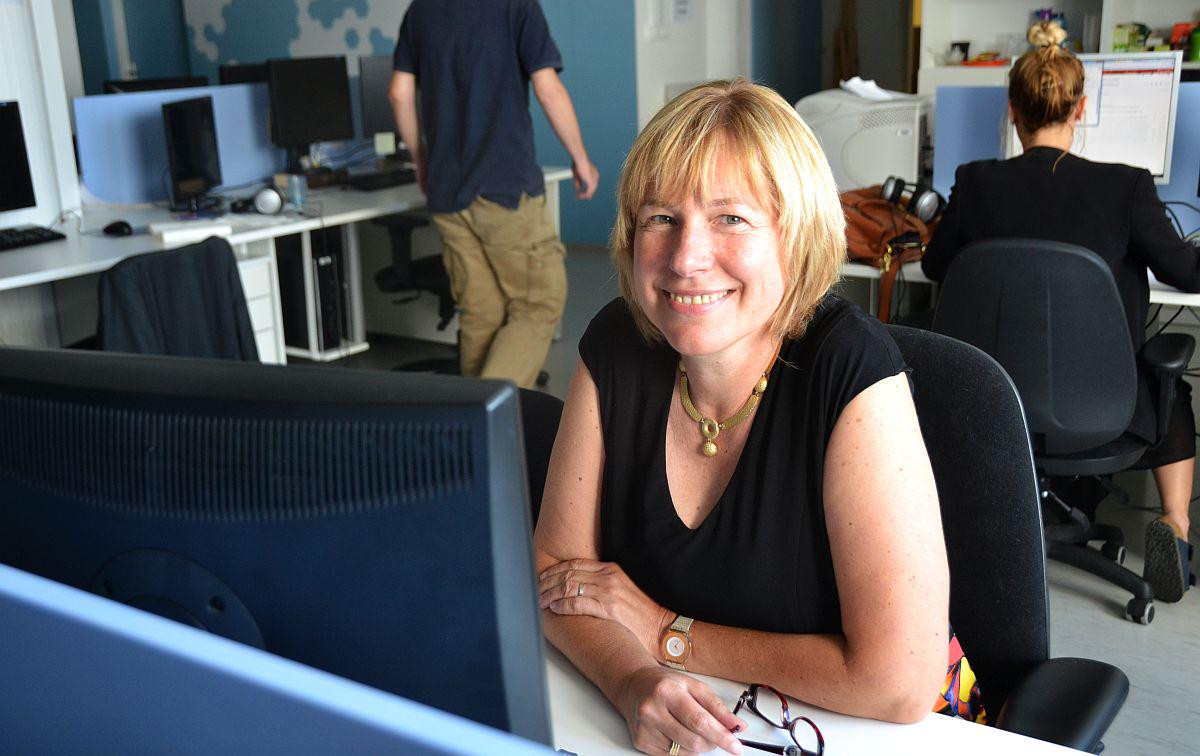
Today’s guest in MMC’s chat room was Minister for Development, Strategic Projects and Cohesion Alenka Smerkolj. Slovenia is entering the new EU cohesion policy programming period, and Smerkolj’s ministry is in charge of the five most important funds (cohesion, regional, social, agricultural and fisheries fund) from which Slovenia could absorb the lion’s share of European funds. According to Smerkolj, 4.1 billion euros were allocated to Slovenia. "Being a realistic optimist by nature, I’m confident that Slovenia will absorb all of the money," said the minister.
In the chat room, the minister revealed how successful Slovenia was at absorbing European funds so far, which projects have had the most success, and how they contributed to the overall prosperity of the nation. "Whenever we broach the issue of funds, I like talk about how much EU money Slovenia was able to attract. Slovenia is above the European average – currently we rank 9th among the 28 EU member states. However, the more important question is: What have we done with the funds? We have created 6000 jobs, the share of students studying natural sciences has increased from 6.8 percent in 2007 to 9.5 percent in 2014, we have provided support to more than 3000 small and medium-sized enterprises, and we have raised 1.75 billion euros in private investments – not to mention all the local and infrastructure projects," explained the minister.
She said she felt it was important to highlight that more than 5000 projects have secured the support of the European cohesion policy. Among them were large-scale infrastructure projects, e.g. railways, motorways, regional roads, water treatment facilities, sewage systems and water pipelines, and medium- and smaller-scale projects carried out by small and medium-sized enterprises. Then there are Europe’s active employment policy measures aimed at vocational education and training. "We also have to mention our award-winning project called Podjetno v svet podjetništva (Ambitiously Entering the World of Business)," added Smerkolj.
However, European funds are certainly not an all-out success story. For instance, the EU stopped funding certain projects after it transpired that there were irregularities. One of those irregularities was committed by the University of Maribor (irregularities in the construction of the new Maribor Faculty of Medicine building).
"Let me be a bit technical here – when sand gets into the cogs, they slow down and start creaking. Irregularities are a bit like creaking cogs. We need a stable system, a stable managing authority to minimize irregularities. We cannot avoid them altogether. Let me stress that most of these irregularities are inadvertent errors. They mostly happen at an operational level and can usually be solved. Still, sometimes they happen on purpose, and we want to take action against such irregularities. This is where the stable system I mentioned comes in. We need one to detect such irregularities," said Smerkolj.
B. R., G. C.; translated by D. V.

































































